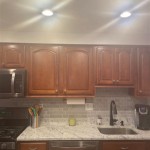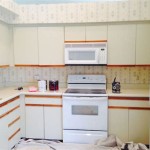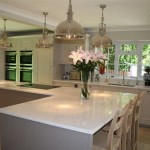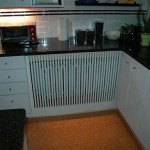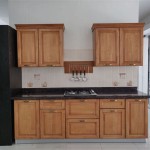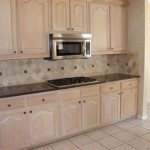Ply Thickness in Kitchen Cabinets: An Essential Guide
Kitchen cabinets are a significant investment, both financially and aesthetically. When it comes to selecting the perfect cabinets for your dream kitchen, understanding the importance of cabinet ply thickness is crucial. Plywood, the primary material used in cabinet construction, significantly influences the durability, stability, and overall quality of your cabinetry.
Ply thickness refers to the number of layers, or plies, that make up a sheet of plywood. Each ply is typically 1/6 inch thick, and the total thickness of the plywood is determined by adding the thickness of each ply. The industry standard for kitchen cabinet construction is 5/8 inch plywood, consisting of five plies. However, some manufacturers may offer thicker plywood options, such as 3/4 inch or 1 inch, for added strength and durability.
Thicker plywood provides several advantages for kitchen cabinets. First and foremost, it enhances the cabinet's structural integrity. Thicker plywood is more resistant to bending, warping, and sagging, ensuring that your cabinets maintain their shape and alignment over time. This is particularly important in areas of the kitchen exposed to moisture and humidity, such as near the sink or dishwasher.
Moreover, thicker plywood improves the cabinet's stability and rigidity. It provides a more stable base for mounting cabinet hardware, such as hinges and drawers. This ensures smooth and reliable operation of your cabinets, preventing issues such as doors sagging or drawers jamming.
In addition to structural benefits, thicker plywood also contributes to the overall quality and aesthetics of your cabinets. Thicker plywood is less prone to dents, scratches, and other imperfections. This results in a more durable and refined finish that can withstand daily use and abuse in your kitchen.
However, it's essential to note that thicker plywood comes at a slightly higher cost. Thicker plywood requires more material and manufacturing processes, making it more expensive than thinner plywood. Therefore, it's important to consider your budget and the specific needs of your kitchen when determining the ideal ply thickness for your cabinets.
In conclusion, ply thickness plays a vital role in the quality, durability, and aesthetics of kitchen cabinets. While 5/8 inch plywood is the industry standard, thicker plywood options, such as 3/4 inch or 1 inch, provide additional strength, stability, and resistance to wear and tear. By carefully considering the ply thickness and other factors, such as cabinet construction, materials, and hardware, you can select kitchen cabinets that will stand the test of time and enhance the functionality and beauty of your dream kitchen.

Which Plywood Is Best For Modular Kitchen Designcafe

Cabinet Quality Kitchen Rta Cabinets Orange County Pre Made Whole Quartz Countertop Slab Prefab Granite Installation

Which Plywood Is Best For Modular Kitchen Designcafe

4 Ideas To Help You Choose Better Kitchen Cabinets

Which Plywood Is Best For Modular Kitchen Designcafe

Which Plywood Is Best For Modular Kitchen Designcafe

Choosing The Best Type Of Plywood For Cabinets Columbia Forest S

Which Plywood Is Best For Modular Kitchen Designcafe

Modular Kitchen Cabinet Plywood Thickness 16mm Square Feet At Best In Bengaluru Neo Wood Interiors

What Size Plywood Should You Use To Build Cabinets Ehow

